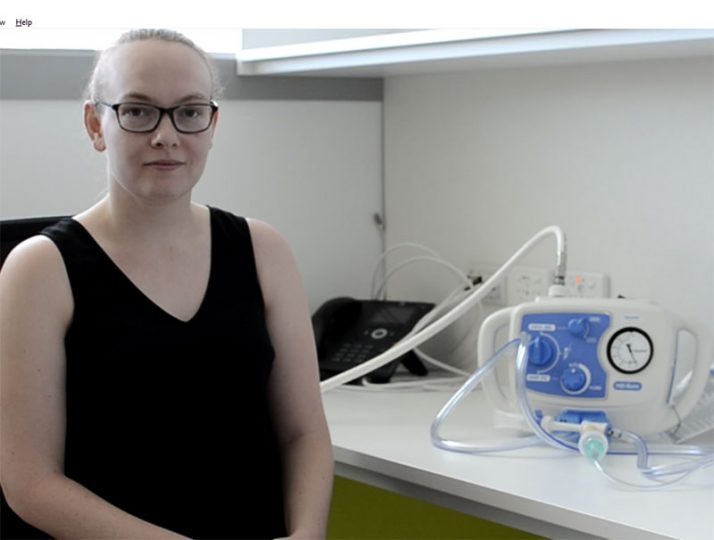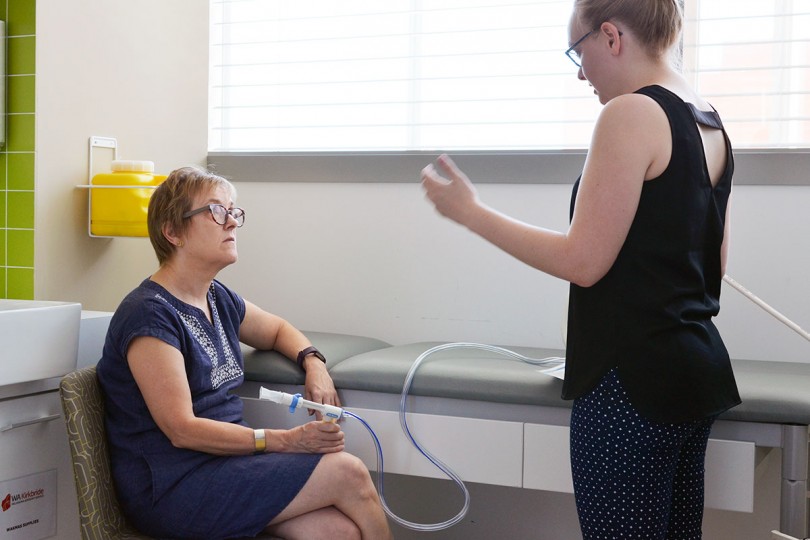Research could help cystic fibrosis patients breathe easier

Researchers at the Institute for Respiratory Health are studying whether a new breathing device called the MetaNeb® is more effective than other critical care devices and physiotherapy techniques in helping people with cystic fibrosis (CF) clear their lungs of sticky mucus.
Naomi Chapman, a physiotherapist at Sir Charles Gairdner Hospital (SCGH) and researcher at the Institute, received funding from Conquer Cystic Fibrosis (CFF) to undertake her PhD at Curtin University focusing on the project. The results of this study may influence how physiotherapists assess and treat adult CF patients in Australia and across the globe in the future.
CF is an inherited lung disease that causes a build-up of sticky mucus in the lungs of patients with the disease, this can lead to constant infection and inflammation. It also damages the airways causing a progressive decline in lung function over time.

Currently, physiotherapists use different techniques to clear the mucus from patients’ lungs including manual techniques and devices like the MetaNeb®. But there is limited evidence to show what is the most effective in helping people with CF clear their lungs.
“The MetaNeb® is an innovative respiratory device and a non-invasive therapy that we started using in 2016 with patients at the hospital. The device provides bursts of pressure to the airways, which helps to expand and clear sticky mucus from the lungs,” said Ms Chapman.
“My project is looking at the effects of the MetaNeb® on lung function, mucus clearance and CF-related symptoms in adults with CF who are well and those who are hospitalised with a chest infection.
“If my research finds the MetaNeb® to be more effective and time-efficient than other techniques, this could change how physiotherapists choose to treat CF patients. It could also help improve lung function and quality of life for those hospitalised with cystic fibrosis.”